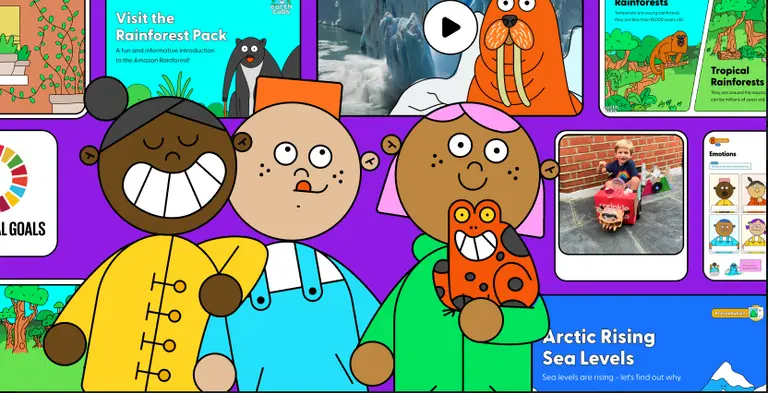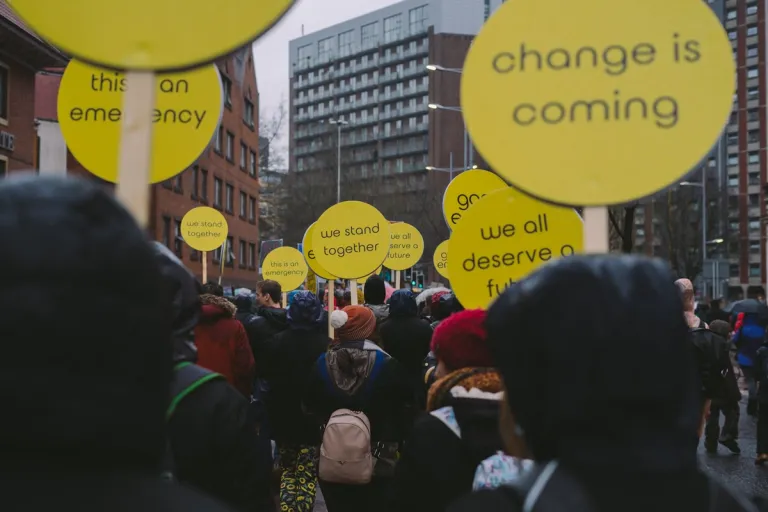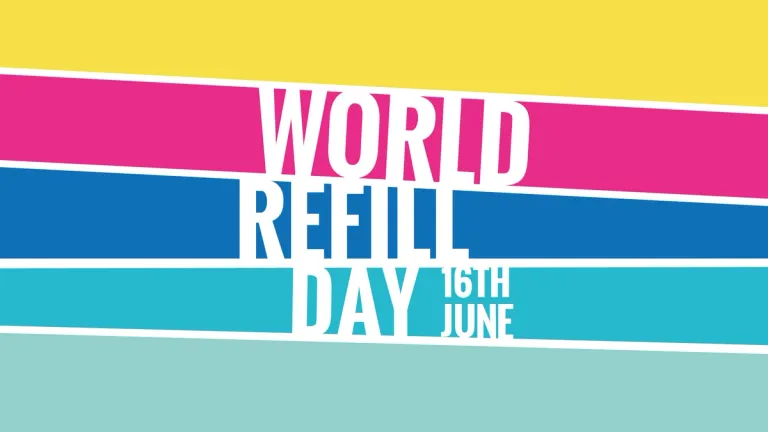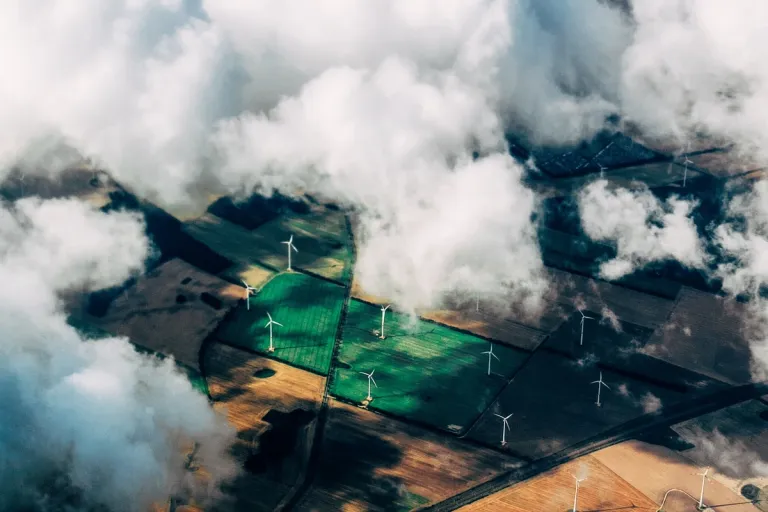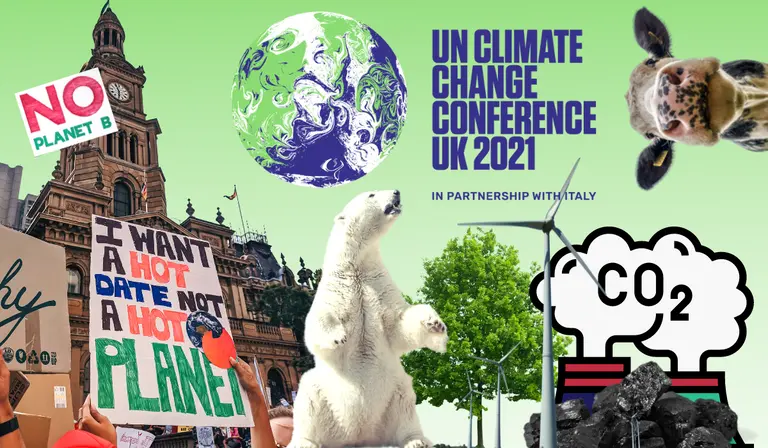There had been high hopes for this year’s Conference of Parties (COP), which brings together leaders from all over the world to agree action on climate change.
COP26 in Glasgow last year set the stage for important progress on several issues, such as the phase-out of fossil fuels. But proceedings at this year’s event in Egypt’s Sharm el-Sheikh didn’t go as many had hoped, with nations only agreeing on the final document at the very last moment.
Nonetheless, despite a generally disappointing outcome, some important issues were addressed. Here's the good and the bad from COP27.
Developing countries will be compensated for loss and damage caused by climate change
Calls for the creation of a ‘loss and damage’ measure have been ongoing for the past 30 years – at COP27, the issue was finally addressed. While developing countries often have the smallest carbon footprints, they are the nations most likely to suffer the worst impacts of climate change, which is being driven by rich, high-emitting countries.
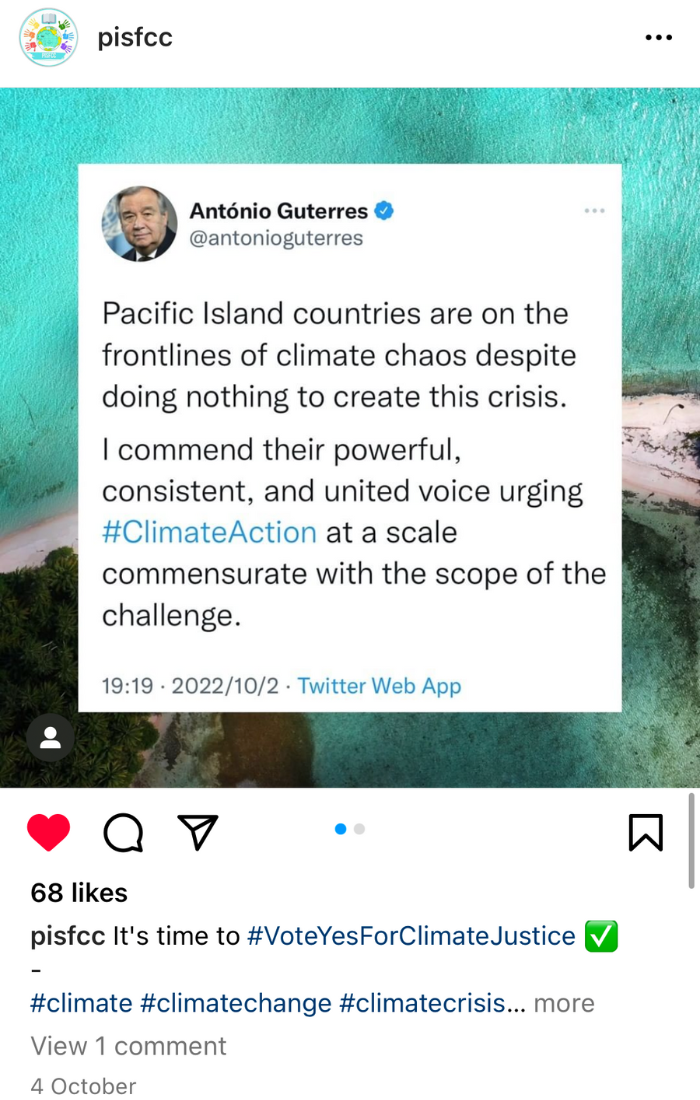
These carbon offenders have historically been reluctant to explore compensatory measures for fear of being hit with massive penalties and legal liabilities, but they’ve now changed their approach.
What happens now?
Representatives from 24 countries will set up a committee to discuss how the proposed loss and damage fund will work, with its recommendations presented at COP28 next year, in the United Arab Emirates.
Read our article on Climate Justice for more on this topic.
There was weak progress on the 1.5C commitment
COP26 in Glasgow saw a major push to “keep 1.5C alive”. That is, to prevent a global warming increase of 1.5C (as agreed at COP21 with the Paris Agreement), in order to avoid the worst impacts of climate change.
In Glasgow, countries agreed to “revisit and strengthen” their climate plans in line with this target, but as COP27 shows, only a few have done so. A number of countries wanted the final Sharm el-Sheikh agreement to set a deadline for peak emissions in 2025 in order to make the 1.5C target feasible, but this failed to make the final cut.
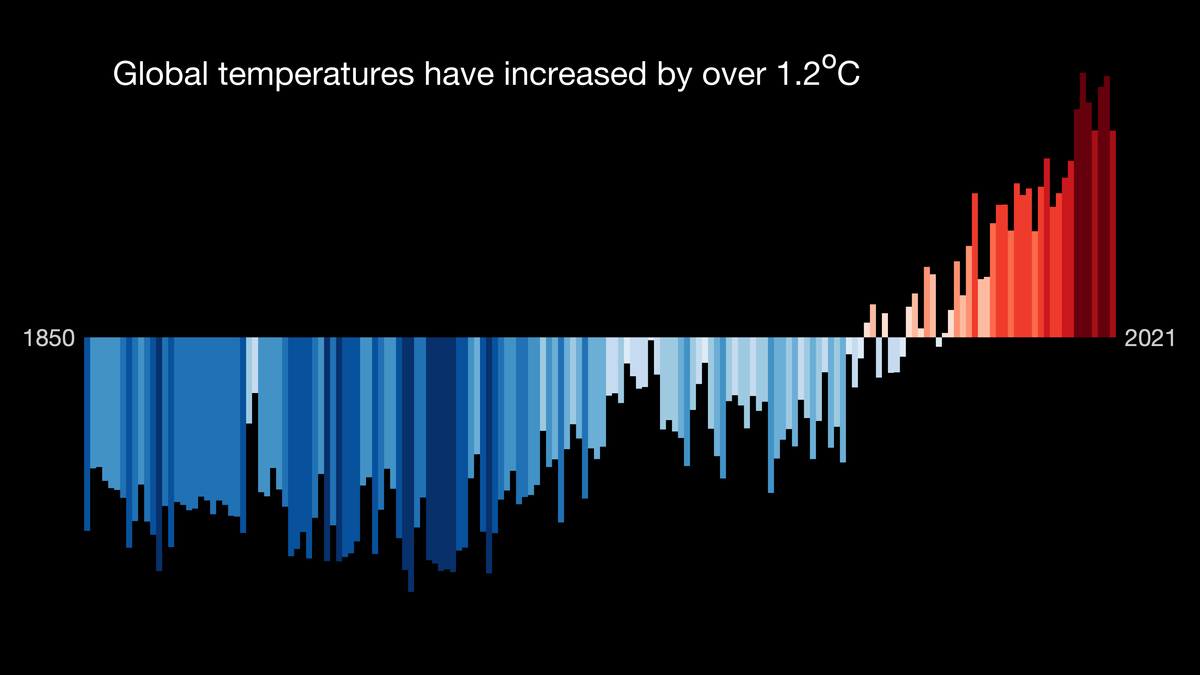
Image: University of Reading #ShowYourStripes. Graphics and lead scientist: Ed Hawkins. Data: Berkeley Earth, NOAA, UK Met Office, MeteoSwiss, DWD, SMHI, UoR, Meteo France & ZAMG
What happens now?
Without a renewed commitment to “keep 1.5C alive” there is a risk that countries will lose focus on their climate plans and that emissions will continue to rise beyond 2025. If the global temperature rises above 1.5C many countries, such as small island states and African nations, will be impacted significantly.
Fossil fuel dependence will continue
COP26 in Glasgow called for the phase-out of fossil fuels – the primary cause of climate change – and many were hopeful proceedings in Sharm el-Sheikh would fortify this ambition. But no real progress was made, with the final agreement simply acknowledging the need for “accelerating efforts towards the phasedown of unabated coal power and phase-out of inefficient fossil fuel subsidies”.
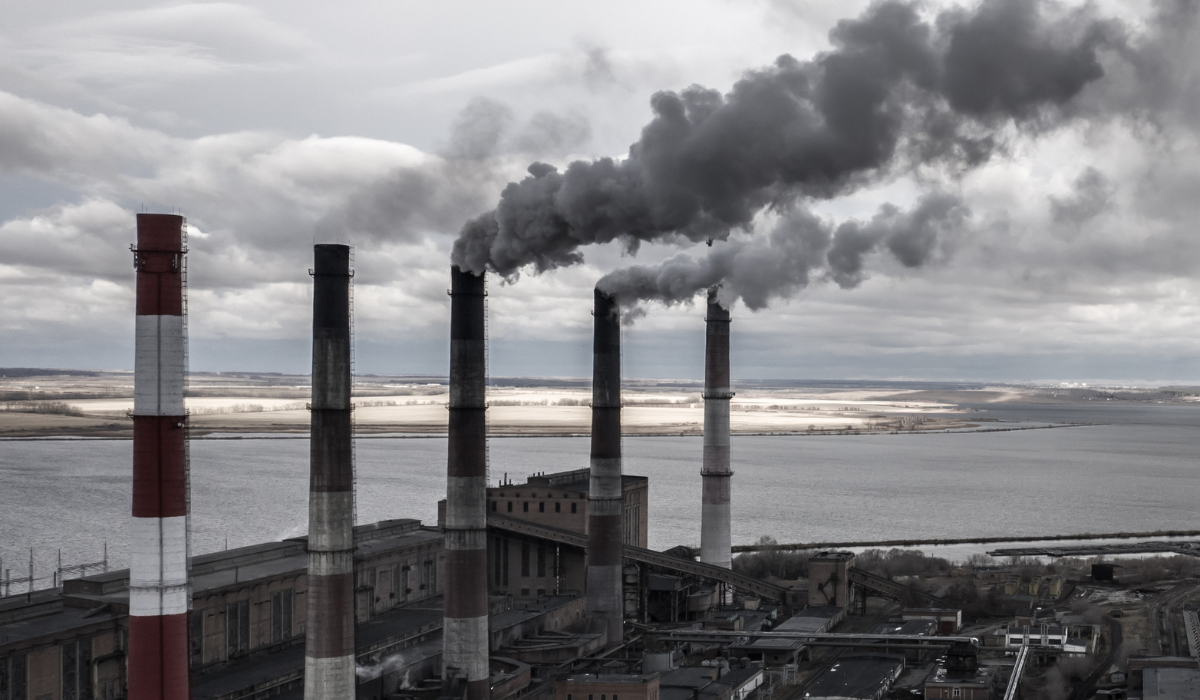
What happens now?
Despite strong pushback from oil-reliant countries, some nations are taking the lead on phasing down fossil fuels. India, the EU, Colombia and a number of small island states came together ahead of COP27 to make their stance on fossil fuels known, and have said they will take action on the matter even if no firm agreements were made at Sharm el-Sheikh.
Financial institutions come under scrutiny
While green finance wasn’t a major focus of this year’s COP, the spotlight on loss and damage meant that financial institutions were given close attention.
Many – including the World Bank – have been condemned for failing to provide the funding needed to help poor countries mitigate and adapt to climate change.
As such, the final COP27 text calls on shareholders of multilateral development banks and other financial institutions to reform their “practices and priorities” and to “define a new vision”, so they’re able to properly address the climate emergency.
What happens now?
The new commitment to developing a loss and damage mechanism will be a wake-up call for financial institutions – a ‘business as usual’ approach to climate financing simply won’t cut it anymore, and banks will need to take action to drive green finance in a more equitable way.
What you can do to keep the pressure on
Make the climate part of your everyday conversations
Climate change is a daunting issue and not always the cheeriest topic, but making it part of your day-to-day chit chat with others and normalising it as a topic of conversation makes it more accessible to those around you, who may then be inspired to learn more and take their own action.
Share relevant posts on social media
Social media is a phenomenally powerful platform for inspiration, knowledge-sharing and connectivity, and you don’t need to be an ‘influencer’ to have an influence on others.
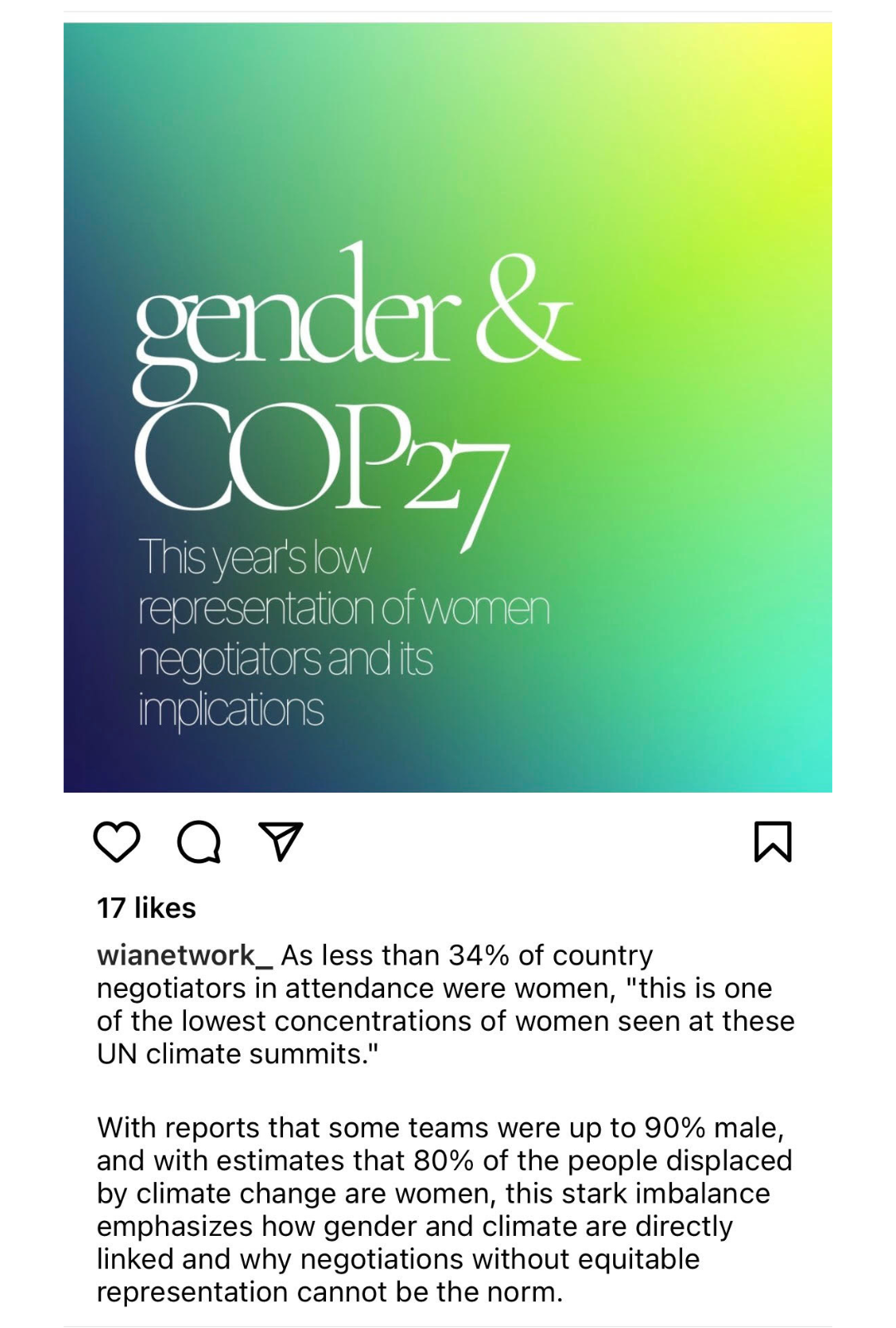
If you talk about your eco-efforts online – whether that’s tweeting about a new sustainable fashion label or sharing a photo of the wildlife in your garden – other people will, even if only briefly, be thinking about the environment. And even if just one person is inspired by your actions, who knows what change that could result in?
For ideas on what to share and inspiration follow our ethy instagram account. We also love Atmos, Greenpeace UK, Plant Based News, and UN Climate Change.
Sign a petition
Petitions also send an important message to lawmakers and authorities – even if they don’t take any action on an issue, a petition still serves as a strong indication of popular consensus. Greenpeace UK has several Climate Action-related petitions here.
Learn more about climate change and get inspired
There are great resources, news publications and apps today that offer great content on sustainability. Read ethy verified Eco News to keep an eye on the positive news and avoid getting too down about it all. Or use the free Earth Cubs app to teach your kids about the environment in a fun and engaging way. And check out our other how-to guides and tips for living more sustainably.
Small lifestyle changes help to fight for a stable climate
Don’t underestimate the power of individual action. In the face of an issue as big as climate change it’s easy to think ‘what difference can I make?’, but everyone making small changes adds up to collective action, and that sends an important message to the governments, brands and organisations that can push for change on a bigger scale.
Quick and easy ways to send this important message include:
Change your search engine and use clever extensions
Change your search engine to a company that puts sustainability at the forefront of its operations. Ecosia, for example, plants trees every time you search for something, while searches with Ekoru help to clean and reforest oceans and the Beagle browser extension fetches eco-alternatives.
Switch your energy supplier
Switching to 100% renewable energy is one of the easiest and most effective ways to reduce your CO2 emissions, and it’s a really straightforward process. See our guide to switching to a green energy provider.
Shop with and support ethical and sustainable brands
Vote with your wallet! Shopping with brands and creators that make the environment a priority tells bigger companies that consumers want sustainable products. All of the businesses verified by ethy have values that align with the UN Sustainable Development Goals and cover everything from fashion and homeware to tech and groceries.
Explore some of the ethy verified ethical brands below:
Reduce your meat consumption
Cutting back on the amount of meat you eat is one of the most impactful things you can do for the climate. Just giving up one portion of meat once a week for a year saves nearly 790 bathtubs of water, three tennis courts of forests and the equivalent amount of greenhouse gases as driving from London to Edinburgh!
Move your money and invest wisely
Banks and building societies aren’t just places to stash your cash – they’re responsible for driving the world’s economy. Some continue to invest in fossil fuels and other damaging environmental practices, while others take a much greener approach, and ensure their activities only have a positive impact on the planet. Moneyexpert.com rounds up the best ethical banks, and explains what to look for when making the switch.
You may also like...
Sign up for our newsletter
Get the latest sustainability news delivered directly to your inbox.







